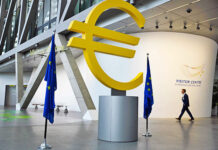AP – World shares were mixed yesterday after a sharp decline on Wall Street that took benchmarks back to where they were in June.
Oil prices rose and United States (US) futures also were higher.
Germany’s DAX edged 0.1 per cent lower to 15,241.78 and the CAC 40 in Paris was up 0.1 per cent at 7,082.75. In London, the FTSE 100 shed 0.1 per cent to 7,621.77.
The future for the S&P 500 was up 0.4 per cent, while that for the Dow Jones Industrial Average gained 0.3 per cent.
On Tuesday, the S&P 500 tumbled 1.5 per cent and the Dow industrials fell 1.1 per cent.
The Nasdaq composite lost 1.6 per cent. September is on track to be the worst month of the year for stocks as investors become convinced the Federal Reserve (Fed) will keep interest rates high for a longer time than they had earlier hoped. In Asian trading, Tokyo’s Nikkei 225 recovered from earlier losses, gaining 0.3 per cent to 32,371.90.

In Hong Kong, the Hang Seng advanced 0.7 per cent to 17,592.54. The Shanghai Composite index added 0.2 per cent to 3,107.32.
In China, concerns have continued over heavily indebted real estate developer Evergrande.
The property market crisis there is dragging on China’s economic growth and raising worries about financial instability.
Evergrande’s Hong Kong-traded shares plunged 19 per cent following an unconfirmed report by Bloomberg that Chinese police have put its founder, Hui Ka Yan, under residential surveillance. Shares in Country Garden Holdings, another debt-encumbered developer, were down 3.3 per cent. Australia’s S&P/ASX 200 slipped 0.3 per cent to 7,030.30. In Seoul, the Kospi edged 0.1 per cent higher, to 2,465.07.
On Tuesday, the S&P 500 tumbled 1.5 per cent for its fifth loss in six days, closing at 4,273.53.
The Dow Jones Industrial Average fell 1.1 per cent to 33,618.88, and the Nasdaq composite lost 1.6 per cent to 13,063.61.
September has brought a loss of 5.2 per cent so far for the S&P 500, putting it on track to be the worst month of the year by far, as the realisation sets in that the Fed will keep interest rates high for longer than hoped for.
That understanding has sent yields in the bond market to their highest levels in more than a decade, undercutting prices for stocks and other investments.


















































